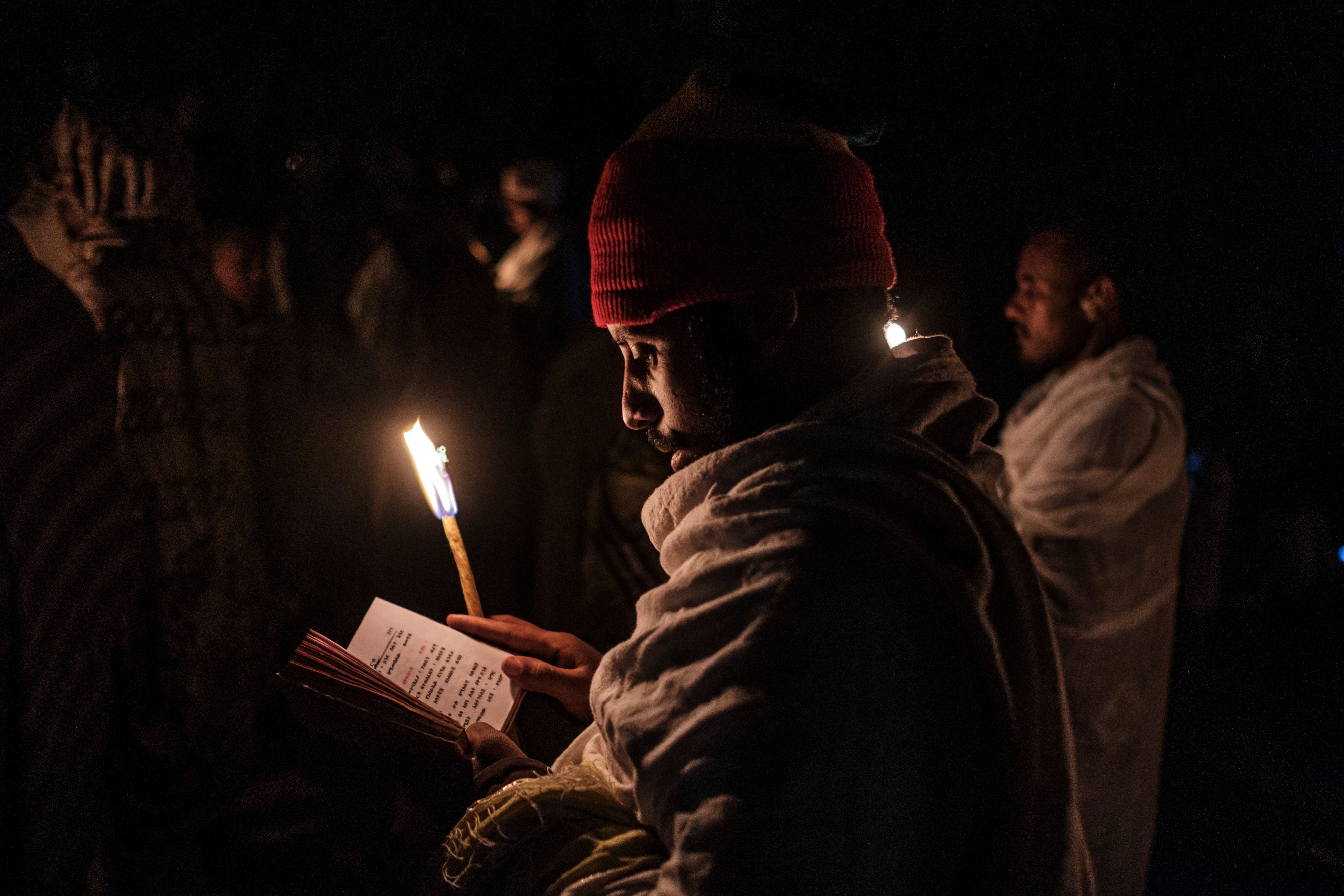Religion is crucial to combatting the climate crisis in Africa
Religious voices must be have a seat at the table – especially since they represent so many Africans


Your support helps us to tell the story
From reproductive rights to climate change to Big Tech, The Independent is on the ground when the story is developing. Whether it's investigating the financials of Elon Musk's pro-Trump PAC or producing our latest documentary, 'The A Word', which shines a light on the American women fighting for reproductive rights, we know how important it is to parse out the facts from the messaging.
At such a critical moment in US history, we need reporters on the ground. Your donation allows us to keep sending journalists to speak to both sides of the story.
The Independent is trusted by Americans across the entire political spectrum. And unlike many other quality news outlets, we choose not to lock Americans out of our reporting and analysis with paywalls. We believe quality journalism should be available to everyone, paid for by those who can afford it.
Your support makes all the difference.This year’s Earth Day arrives against a grim backdrop. The most recent report by the Intergovernmental Panel on Climate Change warns that it is “now or never” to avert irreversible global heating.
That news hits my continent of Africa especially hard. Though we produce only four per cent of global carbon emissions, the lowest of any world region, we’re already paying a disproportionate price. Africa faces a bleak future full of extreme weather events, such as the rapid recession of rare glaciers, desertification, famines and torrential rains. The continent is already under-resourced and lacks the infrastructure to deal with the worst effects of the climate crisis.
But while the UN and policy makers in the EU attempt to rally African decision-makers to invest in climate goals, they are failing to engage – or even recognize – the single greatest resource which could help mobilise Africans: faith.
Africa is home to some of the world’s largest and fastest growing Christian and Muslim communities, all of whom hold great social, cultural, and economic power. According to a 2015 poll, Africa is the most religious continent on the planet with over 80 per cent of people identifying with a religion. And therein lies the untapped power and moral authority that is not being utilised in the fight against the climate crisis.
Religious Africans are likely to be active and devoted in their religious practice, and strongly resistant to secularisation. So much so that religion in Africa is closely tied to the traditions of the continent, and in general, plays a notable role in the decisions people make about their own development.
Religion deeply influences the behavioural aspects that affect our environment. These include childbearing decisions, consumption or production patterns, or even how the climate crisis is perceived – whether it is human-caused or simply something outside our control. In this context, religious institutions hold great power to offer the intellectual and moral lens to both understand the climate crisis and adhere to climate friendly policies.
And as more young Africans – who will constitute 42 per cent of the world’s total youth by 2030 – enter the large fold of faith-based population, advocacy movements are also gaining major traction and producing tangible impacts.
For example, Extinction Rebellion Muslims, which sees African Muslims partner with like-minded people of different faiths as far as the United Kingdom, successfully stalled the construction of luxury resorts in Nairobi National Park. But this is only the tip of a largely unnoticed groundswell of faith-based climate coalitions.
For instance, the Interfaith Center for Sustainable Development, which promotes renewable energy projects by appealing to religious values and commitments, recently started a solar fields project on Anglican Church lands in Mozambique. And Catholic groups like the Ecclesial Network for the Congo River Basin, or REBAC, protect African rainforests by organizing protests and empowering indigenous groups.
But it doesn’t end there.
To keep up to speed with all the latest opinions and comment, sign up to our free weekly Voices Dispatches newsletter by clicking here
The world’s largest Islamic NGO, the Muslim World League (MWL), already has a substantial presence in Africa, partnering with major bodies like UNICEF to address climate impacts on poverty across the continent. Now its Secretary General, Dr. Muhammad bin Abdul Karim Issa, is helping launch a new NGO focused on climate action in Africa (amongst other regions).
Called Faith for Our Planet (FFOP), it is premised on the realisation that faith is one of the bigger drivers of societal change and as such, is now actively building a faith based network of grassroot religious actors across – and beyond – Africa to combat the climate crisis.
All of this points to a stark reality that international development agencies, governments and major intergovernmental bodies must take stock of.
Firstly, that religious voices must have a seat at the table – not only because they represent so many Africans and the rest of the world – but because they coordinate and inspire like few others can. In Africa and elsewhere they are already doing the bulk of the work.
Secondly, for all the west does to remove religion from politics, it should recognise that elsewhere faith is inseparable from the fabric of everyday life. So much so that the power of faith could be the key to offering Africa – and all in the Global South – refuge from an increasingly uninhabitable planet.
Muhammed Magassy is a member of the national assembly of the Gambia for Basse
Join our commenting forum
Join thought-provoking conversations, follow other Independent readers and see their replies
Comments